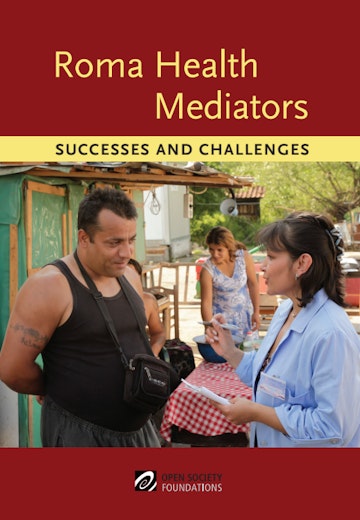Roma Health Mediators: Successes and Challenges looks at mediation programs in six countries: Bulgaria, Macedonia, Romania, Serbia, Slovakia, and Ukraine. Mediators have made great strides in addressing the poor health conditions found in Roma settlements in these countries. They have helped increase vaccination rates among Roma, helped clients obtain identification and insurance documents, provided health education to Roma children and adults, and improved health care provider knowledge and attitudes about Roma.
Despite the success of such programs, Roma Health Mediators remain plagued by several challenges. Mediators tend to earn low salaries and have limited professional development opportunities; at the same time, they lack adequate supervision and support. Some mediation programs have inconsistent financing, resulting in contract insecurity for mediators. Moreover, mediators are often isolated from other parts of the health care system and some countries continue to ignore the social factors that lead to poor health in Roma communities.
This report by the Roma Health Project of the Open Society Foundations offers recommendations for strengthening mediator programs in each of the six focus countries. It builds on research findings from a previous 2005 report, Mediating Romani Health, which studied programs in Bulgaria, Finland, and Romania.
Download
-
Roma Health Mediators: Successes and Challenges (1.85 Mb pdf file)
Download the full report.
